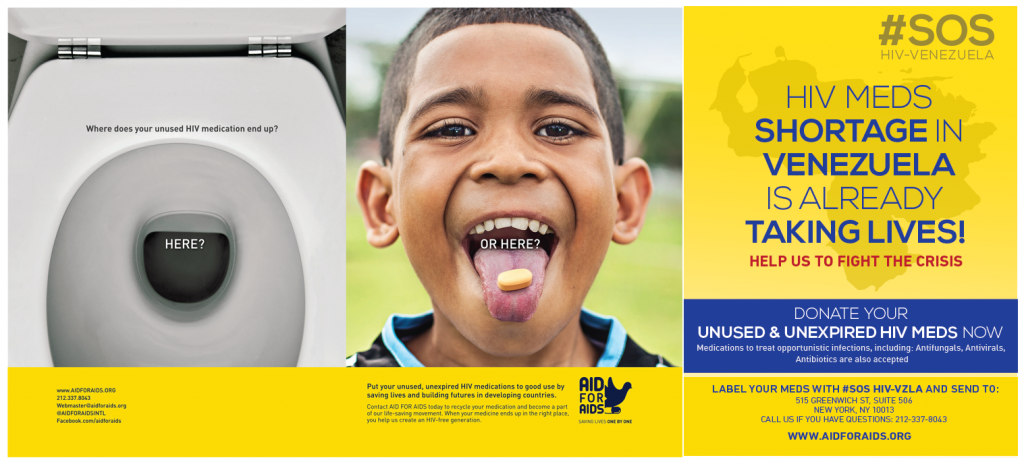Even though Venezuela is the third largest oil exporter to the United States and has the largest oil reserves in the world, you would not know that if you visited the country now.
The country’s infrastructure is in ruins. State officials have been able to pocket much of the oil revenues and imposed illogical dollar exchange restrictions that are suffocating the economy and its people. The inflation rate is 57% and the crime rate is among one of the worst in the world. Since February 12, students and the general population have been out in the streets protesting the scarcity of goods and high crime rate.
At least 41 people have been killed since February 12 and hundreds have been jailed for protesting against the regime. The Venezuelan Supreme Court, which consists mostly of regimen backers (Chavistas), has recently made it illegal to protest to scare the population. Leopoldo Lopez, the opposition leader educated in Harvard, is in prison due to the regime’s claims that he incited protests. All TV and radio stations that criticized the regimen have been shut down. Opposition newspapers have been denied currency to import paper, so they are also unable to provide news. Twitter is the only media venue left for Venezuelans to get news not distorted by the regimen. Most Latin American countries and the United States have turned a deaf ear to the situation. Some speculate that Venezuela’s oil is keeping leaders around the world quiet.
The government controls access to foreign currency but hasn’t made enough dollars available to cover imports of medicines. Venezuela imports about 90% of its pharmaceutical drugs.
Venezuela imports 29 HIV antiretrovirals and produces none. It also imports most of its food. Due to currency exchange restrictions, red tape and price controls, medication and food imports have halted in the past quarter. Many importers have run up big debts with providers abroad due to red tape and delays acquiring dollars through the highly corrupted state currency agency.
The shortage of medicines is part of broader economic turmoil that forces Venezuelans to routinely form hours-long lines outside shops to buy staples such as toilet paper, cooking oil, flour and milk.
“Companies that import and make medicines and medical items say they now owe their suppliers some $1.2 billion,” said Freddy Ceballos, president of Pharmaceutical Federation of Venezuela in an interview for USA Today.
The wretched condition of Venezuela under its socialist leadership is now worsening the ability of hospitals to treat people, especially patients with HIV.
The latest shortage in antiretrovirals exposed the debilitation of the country’s socialized medical system, which is touted as free and comprehensive by the government but often is neither. Former president Hugo Chavez often cited the country’s health system as one of his revolution’s greatest accomplishments. But it has been a total failure.
“I go to the state hospital once or twice a week to see if my pills have arrived,” says schoolteacher Jose Ramos, 38, who stays alive with antiretroviral medicines that have always been free here under a government program. “They always tell me to come back later.”
Ramos isn’t alone. Nearly 50,000 Venezuelans are taking antiretrovirals to keep HIV from turning into full-blown AIDS. “Thousands of HIV patients are now without their medicines,” said Feliciano Reyna, a leading HIV activist in Venezuela and founder of Acción Solidaria, a non-profit organization in Caracas.
With HIV/AIDS, the shortages have been made up in antiretroviral donations from outside the country.
“It’s not easy to find donations abroad now,” says Feliciano Reyna. Reyna returned last year after a trip abroad with 120 bottles of antiretrovirals. A similar trip this month netted nothing. “Our situation is really critical.”
The government repeatedly denies any problems and blames the opposition and the “Empire” (the United States).
The danger of this medication shortage for HIV positive people is that any interruption in their drug regimen not only can allow the virus to acquire resistance to the medications but would also mean death to thousands if the problem is not resolved. No one knows if in fact it will be eventually be resolved by the regimen.
Please help by donating your unused medications to: https://aidforaids.org/recycling-drive/.
Aid for Aids is a cost effective organization with a reach far greater than its size, with a massive impact that today reaches people in over 40 developing countries. AFA was founded in 1996 by a simple, yet powerful idea: a lot of very expensive HIV medication is thrown away; why not collect it and get it to people who need it but can’t get it? Since their founding in 1996, they have redistributed over $110 million of life-saving medication to more than 18,000 people worldwide.


